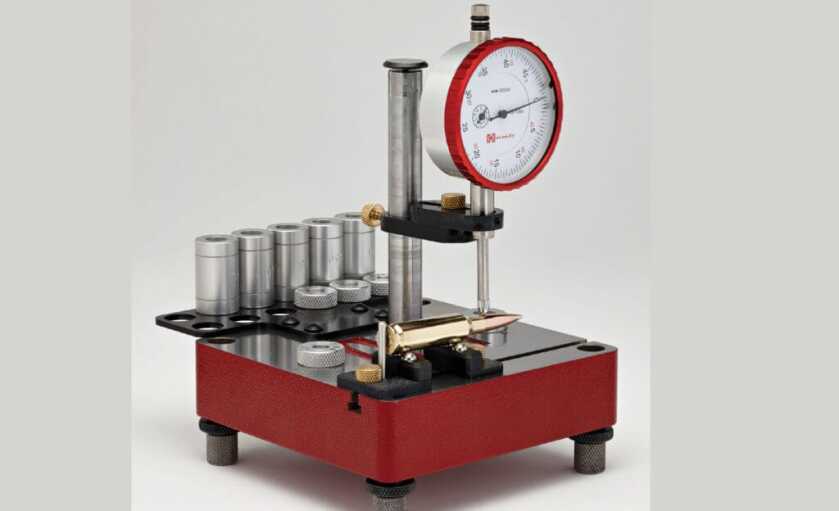
My wife is never more puzzled than when I ask for reloading equipment for Christmas.
“You want a what?” is usually the first question, followed by, “Are you sure?”
Your relatives might not know the difference between wet and dry tumbling, or the benefits of a carbide sizer die, but that doesn’t mean you should leave reloading supplies off your list to Santa. Now, I can’t help you explain to your grandma how an overall length gauge works, but I can tell you what I’m asking for this year, so at least we can confuse our relatives together.
Below are my top six reloading items for Christmas of 2019. I haven’t used all these products myself (comment if you have!), but I’m intrigued by each of them, and I think you will be, too.
Shell Shock NAS(3) 9mm Cases
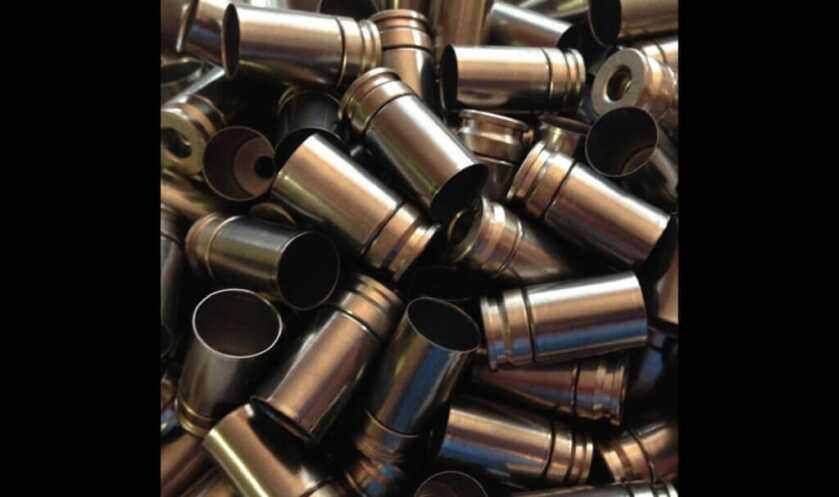
We’ll start with something a bit off the beaten path. Shell Shock constructs their NAS(3) two-piece 9mm cases by marrying a nickel-plated aircraft-grade aluminum base with a nickel-alloy stainless cylinder (hence, “NAS”). Shell Shock claims this all-nickel-alloy construction promises significant advantages over all-brass and nickel-plated brass cases.
Per their website, NAS(3) cases are 50% lighter than brass cases, offer greater lubricity and will not abrade, clog, foul, wear-out or damage breach and ejector mechanisms. The cases offer greater corrosion resistance, higher tensile strength (2x stronger) and more elasticity than brass. They eject cool to-the-touch, can be picked up with a magnet, and will not split, chip, crack or stretch.
The downside? You can’t use your current reloading dies. The nickel alloy used in Shell Shock’s cases has a higher tensile strength than brass, so you’ll need to purchase a set of their dies for $99.99. Shell Shock’s dies will work with brass cases, though, which means you’re not purchasing a set of dies you can only use with one type of case.
The price is lower than I expected: $60 for 500 unprimed cases. You can definitely find cheaper 9mm brass, but you can also find premium products for even more per unit.
MSRP: $0.12/case – $0.085/case
Click here to check out the Shell Shock NAS(3) 9mm cases.
RCBS Pro Chucker 5 Progressive Reloading Press
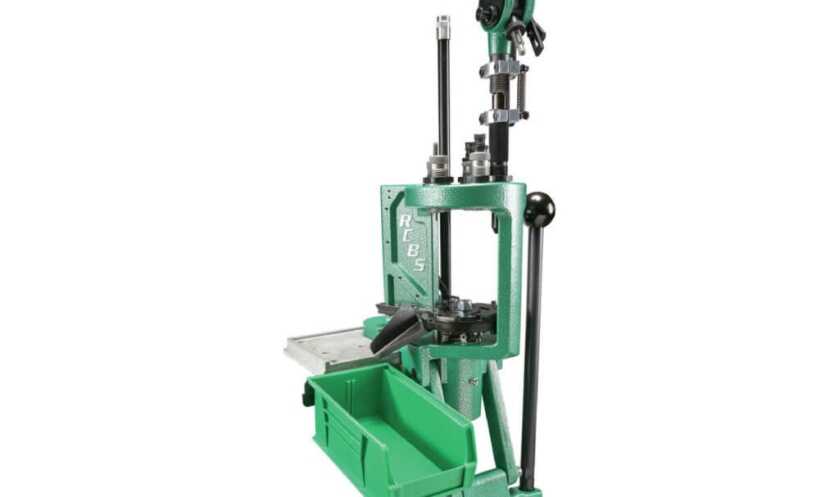
I got into reloading to make my own precision rifle ammunition, but I recently started loading 9mm to blow off steam at the end of the day. I find the repetition relaxing, but good grief… it’s tough to get through as many as I’d like in the hour between putting the kids to bed and watching the next episode of Downtown Abbey (I mean, uh, The Sopranos).
That’s why I’ve had my eye on the RCBS Pro Chucker 5 Progressive Reloading Press. The Pro Chucker 5 promises 600 rounds per hour for pistol ammunition and features a quick-change die plate to allow for fast caliber change. The powder measure can be drained without removing it from the press and the preset metering screws can be swapped out to dispense new powder. The Pro Chucker 5 can also be converted to seven-stage operation if you find yourself wanting to seat and crimp bullets in separate steps, among other options.
I’ve owned a Rock Chucker single-stage press since I started reloading, and it’s been as solid as its name suggests. I have no doubt its progressive older brother will be just as reliable.
MSRP: $599.99
Click here to check out the RCBS Pro Chucker 5 Progressive Reloading Press.
Forster 6.5 Creedmoor Bench Rest Die Set
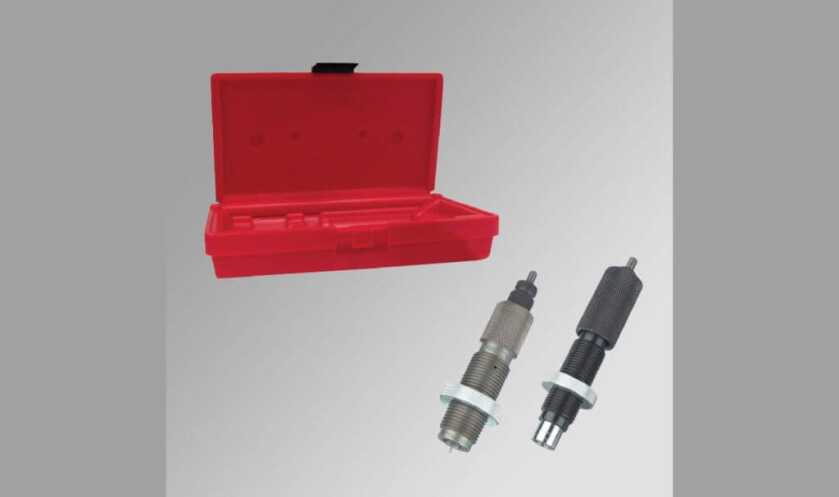
I made the switch from 308 Win. to 6.5 Creedmoor this summer when I tested and reviewed Howa’s 1500 KRG Bravo, and I’m excited to start reloading for this already-accurate rifle. Many companies offer high-quality reloading dies for the 6.5 Creedmoor, but I’m planning to give Forster a try.
Forster’s Bench Rest Die Set comes with a Full Length Sizing Die and a Seater Die. The Sizing Die features an elevated expander ball. The expander ball begins neck expansion while the neck is still supported by the sizing portion of the die chamber, which ensures better case concentricity.
The Seater Die uses a sliding die chamber that holds the case, the bullet, and the seating stem all in perfect alignment. Rather than support just the bullet and case neck, Forster’s system supports the entire outside diameter of the sized case. The result? Better bullet concentricity and more consistent, accurate cartridges.
MSRP: $132.00
Click here to check out the Forster 6.5 Creedmoor Bench Rest Die Set.
The Hornady Precision Measurement Station
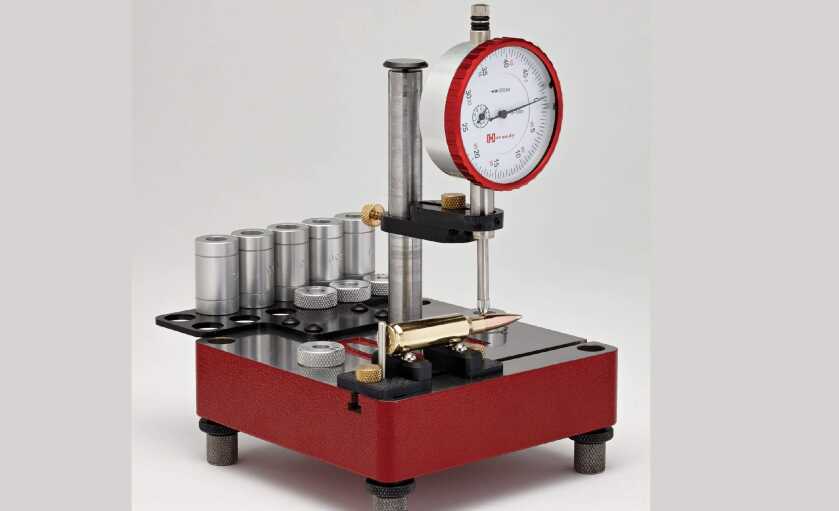
If your reloading bench is anything like mine, you’re running out of space. One option is to get a bigger bench, but if you reload in a crappy shed in the back yard (like me) that isn’t an option. It would be nice to consolidate a few of the measuring tools used to load precision rifle cartridges, which is exactly what Hornady had in mind with the Precision Measurement Station.
While for some reason it gives me an Easy-Bake-Oven-for-Men vibe, I’m still intrigued. One tool, six measurements: bullet base to o-give location; headspace location; overall case length; cartridge base to o-give location; bullet runout; and case neck runout.
The eight-pound base and adjustable rubberized feet keep the station from moving during measurements, and the accessory mount stores and organizes the included five headspace bushings and seven bullet containment comparators.
If you organize your cases and bullets based on the measurements above, this tool will no doubt save both time and space. I would have liked to see a neck wall thickness gauge as well, but I imagine Hornady will include that as add-on option down the road.
MSRP: Not Posted. Available Soon at Midway USA for $253.99.
Click here to learn more about the Hornady Precision Measurement Station.
“Shot Marker” from AutoTrickler
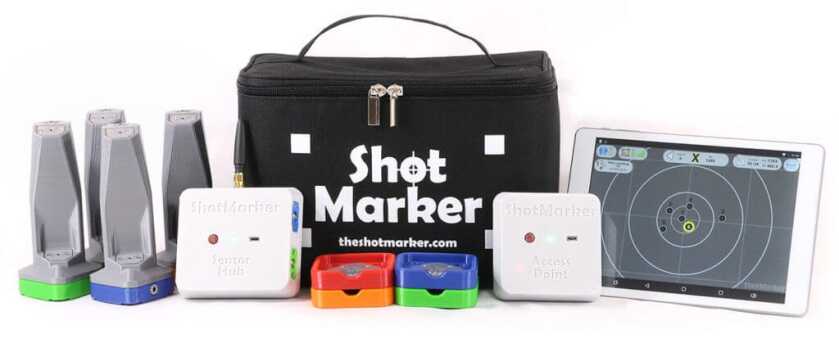
This isn’t reloading equipment, per se, but the Shot Marker from AutoTrickler looks like an amazing tool for facilitating data collection at long distances. The Shot Marker uses eight audio sensors to track the impact point and velocity of any projectile travelling faster than the speed of sound (1125 fps). That means shooters can track group sizes out to about 1400 yards with a 6.5 Creedmoor and about 900 yards with a 308 Win.
The audio sensors connect with a Sensor Hub at each target, which communicates with the Access Point at the firing line. The sensors use LoRa, a low frequency RF protocol, which, unlike Wifi, works at over 2 miles and can connect even without direct line of sight. The Sensor Hub will run for over 100 hours on its internal battery and only needs recharging once every few weeks. All components are waterproof and can be left outside 24/7.
At the firing line, the Access Point can be connected with smartphone or tablet devices to display shot markers and measure group sizes.
Shot Marker’s inventor, Adam MacDonald, is a Canadian software and electronics developer who won the Canadian F-class championship in 2018. I had the chance to review his Two-Box Chronograph earlier this year, which worked flawlessly.
The Shot Marker isn’t cheap, but if your shooting group or range wants to make a joint investment, I think this would be worth it.
MSRP: $799
Click here to learn more about the Shot Marker from AutoTrickler.
Lyman Pro-Touch 1500 Electronic Reloading Scale
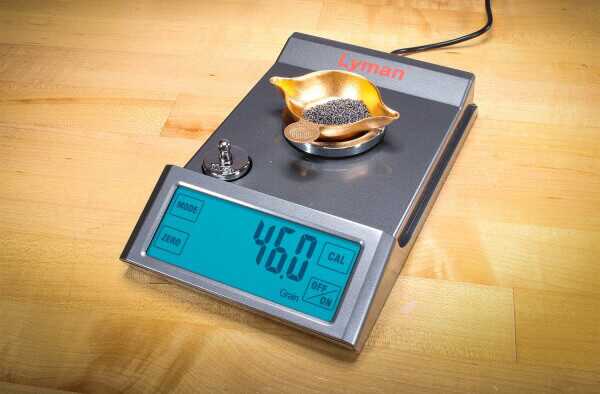
I’ve used an RCBS beam scale exclusively since I started reloading, but I’m thinking about going digital. Digital scales remove the error inherent in reading beam scales (is the line really lined up with the arrow?) and save your eyes from squinting. They’re also less affected by wind, which will allow me to keep the windows open in the aforementioned non-climate-controlled shed.
Digital scales can be had at all price points, but this Lyman looks like a nice middle of the road option. It’s reasonably priced, accurate to 0.1 grain, and boasts a 1500 grain capacity. The readout appears to be large enough for my terrible vision, and it comes with a double-spout powder pan.
The knock on digital scales has always revolved around trusting electronic circuity rather than God-given gravity. The Pro-Touch can help put your mind at ease with an included calibration weight, but it’s still a good idea to conduct extensive testing before forging ahead with your next 500 precision rifle rounds. Many of these smaller scales need a warm-up period before they’re performing at peak accuracy, and sometimes they’re affected by surrounding electronic circuitry.
Still, this unit has been well-reviewed, so I’m prepared to give it a shot.
MSRP: $99.95
Click here to learn more about the Lyman Pro-Touch 1500 Electronic Reloading Scale.
***Buy and Sell on GunsAmerica! All Local Sales are FREE!***

I ordered some of the first runs of Shell Shock loaded ammo and the die set. I use the cases for higher pressure rounds. While it is true you can use the proprietary dies for brass cases, each case has to be lubed. This really slows down the process if you are trying to crank out a bunch of 9mm. Also, the decapping pin is a flimsy roll pin and has broken on me a couple times. It is press fit into the end and I’ve had it break off at the base, requiring me to send the die in and have it replaced. The good news is the warranty work and company responsiveness were great! The cases are a novel concept but the requirement to lube each case kind of takes the fun out of 9mm reloading.
Have to lube every 9mm case? That’s a deal breaker right there
I bought titanium nitride dies so I would NOT have to lube. For the price they are charging for their die set–double what it costs for titanium nitride–you’d think they could solve the lubing issue.
I went and checked: lube is required for any type of case. Interesting concept, but have to pass.